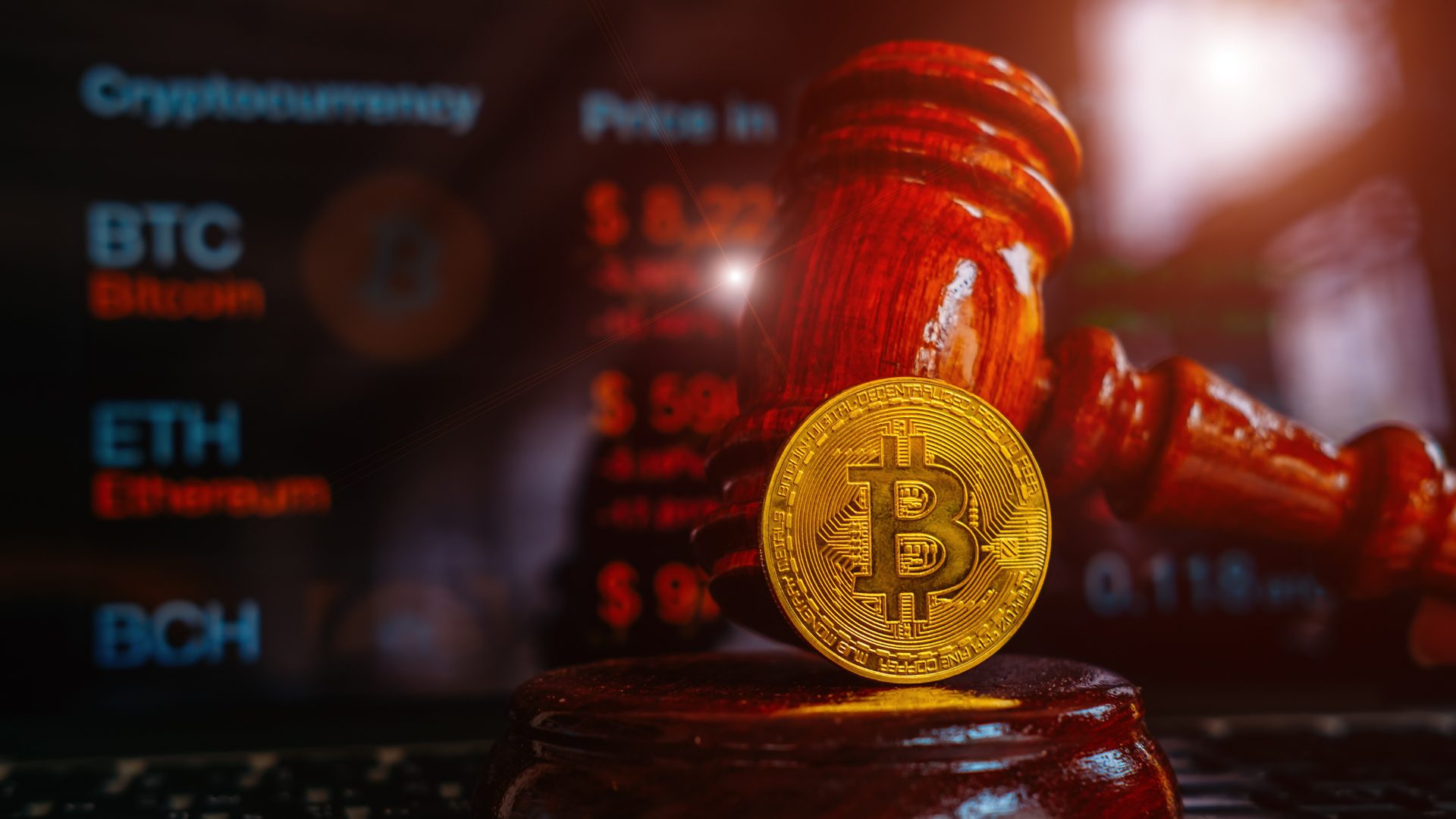
The U.S. Securities and Exchange Commission (“SEC”) is paying considerable attention to the world of cryptocurrency (“crypto”). According to the SEC website, the SEC has brought more than 50 enforcement actions against crypto companies since the start of 2021.[1] Most recently, on June 6, 2023, the SEC filed a complaint against Coinbase, Inc. and Coinbase Global, Inc. alleging that the company unlawfully facilitated the purchase and sale of crypto asset securities.[2] In a July 13, 2023, pre-motion hearing, the U.S. District Court for the Southern District of New York expressed skepticism about the SEC’s position as the agency had previously reviewed, and declared effective, the company’s S-1 form, which allowed Coinbase to take the strong position that the SEC was provided with exhaustive information regarding the company’s business and should not have allowed Coinbase to go public if it was violating securities laws. Coinbase has stated that there is no existing method for crypto exchanges to register securities and that more guidance is needed rather than enforcement. Coinbase received a giant boost for its case last week, when another Southern District of New York case, SEC v. Ripple Labs, Inc.,[3] partially ruled in favor of Ripple.
Ripple, a Win for Crypto
On July 13, 2023, the Court issued an Order on competing motions for summary judgment in SEC v. Ripple Labs, Inc.[4] The analysis of Ripple can be broken down into three separate categories: (1) institutional sales, (2) programmatic sales, and (3) other distributions.
Ripple Labs sold its coin, XRP, pursuant to written contracts. The written contract sales were usually with hedge funds, institutional buyers, and sophisticated investors and are known as the “institutional sales.” Ripple Labs also sold XRP programmatically through trading algorithms. These transactions were blind bid/ask transactions where Ripple did not know who was buying the XRP and the buyer did not know who was selling it. The “other distributions” were when Ripple distributed XRP for payment of services, such as to employees.[5]
The Court ruled in favor of the SEC with regard to the institutional sales and the Court’s analysis was very comparable to the analysis in Sec. & Exch. Comm’n v. LBRY, Inc.[6] Similarly, the Court relied on Ripple’s own marketing materials and the link between the XRP to Ripple’s own success to determine that the institutional sales were investments in securities.[7] However, in contrast to LBRY, the Court also relied on the written contracts themselves, which contained clauses that restricted the transfer of XRP.[8] A transfer restriction is more akin to an investment in a security than purchasing XRP to be used as a currency.[9]
The Court ruled in favor of Ripple as to both the programmatic sales and other distributions. The Court’s analysis for programmatic sales is especially informative for the crypto industry. Here, the Court distinguished the programmatic sales from the institutional sales because the programmatic sales were blind bid/ask transactions.[10] The buyers did not know if they were buying XRP from Ripple or from someone else. The Court also reasoned that Ripple’s sales of XRP represented less than 1% of the global XRP trading volume; therefore, the majority of XRP purchasers didn’t even invest in Ripple.[11] Notably, the Court pointed out that the programmatic sales purchasers did not receive the same marketing materials that the institutional sales purchasers received.[12]
In ruling in favor of Ripple for the other distributions, the Court found that the first prong of the Howey test was not met. The Court determined that the “investors [did not] ‘provide[] the capital,’ ‘put up their money,’ or ‘provide[]’ cash.”[13] Thus, there was no investment of money.
Recent Federal Court Decision Holds that Crypto is a Security
Unfortunately for Coinbase, the argument that more guidance is needed has already failed in court against the SEC. In Sec. & Exch. Comm’n v. LBRY, Inc.,[14] the SEC brought a civil enforcement action against LBRY, Inc. (“LBRY”), an issuer of utility tokens, alleging that LBRY offered and sold unregistered securities in violation of the Securities Act of 1933 (the “Securities Act”). The Court held “that LBRY offered LBC as a security.”[15]
In reaching this conclusion, the Court analyzed the Howey test where only the third prong was at issue: whether there was “an expectation of profits to be derived solely from the efforts of the promoter or a third party.”[16] The Court used LBRY’s own messaging on blog posts, interviews, emails and even Reddit to determine that “the SEC is correct that potential investors would understand that LBRY was pitching a speculative value proposition for its digital token.”[17] The Court also considered LBRY’s own business model, and found that “by retaining hundreds of millions of LBC for itself, LBRY also signaled that it was motivated to work tirelessly to improve the value of its blockchain for itself and any LBC purchasers.”[18]
LBRY made two main arguments, each of which failed. The first focused on the fact that LBC is a utility token; therefore, many consumers purchased LBC with a consumptive intent. The Court quickly did away with this argument, citing the Howey case itself in finding, “the Securities Act would be unable to adapt to the ‘countless and variable schemes devised by those who seek the use of the money of others on the promise of profits’ wherever a token held some consumptive utility.”[19] The second main argument made by LBRY, and important to Coinbase, was that LBRY lacked fair notice that its offerings were subject to the Securities Act. The Court found this argument unpersuasive, reasoning that the SEC brought this action based on the Howey test, a “straightforward application of a venerable Supreme Court precedent that has been applied by hundreds of federal courts across the country over more than 70 years.”[20]
What We Learned
It’s clear that the SEC is taking on the crypto industry, and with the lack of regulation and clarity, it’s unlikely the SEC changes course anytime soon. The LBRY and Ripple cases are also making a strong case that crypto will be considered a security if the issuer invests in its coin and sells the coin directly to the consumer while simultaneously marketing it as an investment opportunity. However, the crypto industry received a major win in the Ripple case when the Court opened the door for various coins to be exchanged on different crypto exchange platforms while not being considered a security. Of course, other factors have to align, such as the buyer not knowing the seller of the coin.
Ultimately, the environment around crypto regulations today remains unclear, which will result in the SEC continuing to investigate and prosecute crypto companies. It’s important that each company analyze the issuance of its coins and evaluate the potential for violations of the Securities Act and if needed, vigorously defend itself and its reputation if the SEC investigates or brings charges.
——————————————————————–
This DarrowEverett Insight should not be construed as legal advice or a legal opinion on any specific facts or circumstances. This Insight is not intended to create, and receipt of it does not constitute, a lawyer-client relationship. The contents are intended for general informational purposes only, and you are urged to consult your attorney concerning any particular situation and any specific legal question you may have. We are working diligently to remain well informed and up to date on information and advisements as they become available. As such, please reach out to us if you need help addressing any of the issues discussed in this Insight, or any other issues or concerns you may have relating to your business. We are ready to help guide you through these challenging times.
Unless expressly provided, this Insight does not constitute written tax advice as described in 31 C.F.R. §10, et seq. and is not intended or written by us to be used and/or relied on as written tax advice for any purpose including, without limitation, the marketing of any transaction addressed herein. Any U.S. federal tax advice rendered by DarrowEverett LLP shall be conspicuously labeled as such, shall include a discussion of all relevant facts and circumstances, as well as of any representations, statements, findings, or agreements (including projections, financial forecasts, or appraisals) upon which we rely, applicable to transactions discussed therein in compliance with 31 C.F.R. §10.37, shall relate the applicable law and authorities to the facts, and shall set forth any applicable limits on the use of such advice.
[1] https://www.sec.gov/spotlight/cybersecurity-enforcement-actions
[2] Securities and Exchange Commission v. Coinbase, Inc. et al, 1:23CV04738.
[3] No. 1:20-CV-10832-AT-SN; Order [874].
[4] No. 1:20-CV-10832-AT-SN; Order [874].
[5] The information in this paragraph is found on pages 4-5 of the Order [874].
[6] No. 21-CV-260-PB, 2022 WL 16744741 (D.N.H. Nov. 7, 2022) (discussed in detail below).
[7] Id. at 19-20.
[8] Id. at 21-22.
[9] Id.
[10] Id. at 23.
[11] Id.
[12] Id. at 24-25.
[13] Id. at 26 (internal citations omitted).
[14] No. 21-CV-260-PB, 2022 WL 16744741 (D.N.H. Nov. 7, 2022).
[15] Id. at 8. The Court made this ruling on competing motions for summary judgment.
[16] Id. at 3.
[17] Id. at 5.
[18] Id. at 6.
[19] Id. at 7.
[20] Id. at 8.



